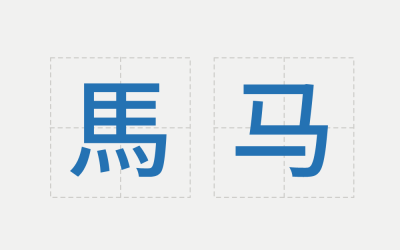In this article, we will have a look at three common ways to say “change” in Chinese.
Chinese Paronyms
In any language, a paronym is a word which shares the same root with another word. To a certain extent, paronyms could be considered as synonyms since they are linked to each other by similarity of their meanings. However, there are still some differences when it comes to the use of paronyms, which sometimes causes confusion for Chinese learners.
So let’s look at 3 commonly used paronyms to the word “change”.
1. 变 (Biàn)
变 biàn is usually a verb, and it is used to express that changes are happening/happened to a person or thing. A very important point which you need to remember about 变 biàn is that there is only one subject (singular or plural) involved in the context.

Examples
他的性格变了。
Tā de xìnggé biàn le.
His personality has changed.
这些气泡在变大。
Zhèxiē qìpào zài biàn dà.
These bubbles are getting bigger.
2. 变化 (Biànhuà)
变化 biànhuà can be treated as a noun or a verb. However, in most cases, Chinese people tend to use it as a noun. Please bear in mind that a sentence containing 变化 biànhuà can refer to the changes to the subject itself, or changes made by the subject to the object.

Examples
在过去的几年中,我的家乡发生了巨大的变化。
Zài guòqù de jǐ nián zhōng, wǒ de jiāxiāng fāshēngle jùdà de biànhuà.
Dramatic changes have happened in my hometown in the past few years.
网络给我们的生活带来了很多变化。
Wǎngluò gěi wǒmen de shēnghuó dài láile hěnduō biànhuà.
Internet has brought a lot of changes to our life.
Vocabulary
过去 guòqù • past
家乡 jiāxiāng • hometown
发生 fāsheng • to happen
巨大 jùdà • huge
网络 wǎngluò • Internet
生活 shēnghuó • life
3. 改变 (Gǎibiàn)
改变 gǎibiàn can be used as a noun or a verb, and it refers to changes triggered by external factors. The first character 改 gǎi means “to fix, to correct”, so 改变 gǎibiàn usually indicates positive changes.

Examples
他的话改变了我对这个问题的看法。
Tā de huà gǎibiàn le wǒ duì zhè gè wèntí de kànfǎ.
What he said has changed my opinion on this issue.
Vocabulary
问题 wèntí • question, problem, issue
看法 kànfǎ • opinion
Take It Further
If you like this post, you can also have a look at our post about the 4 most common Chinese radicals. Do you know all of them?
And if you feel surprised by the changes and have no idea how to express it in Chinese, read our post on the Chinese words you can blurt out when you’re feeling surprised.
Can you think of more Chinese words meaning “change”?
What other paronyms have you noticed in the Chinese language?
Share in comments – or tweet us at @thatsmandarin!









0 Comments